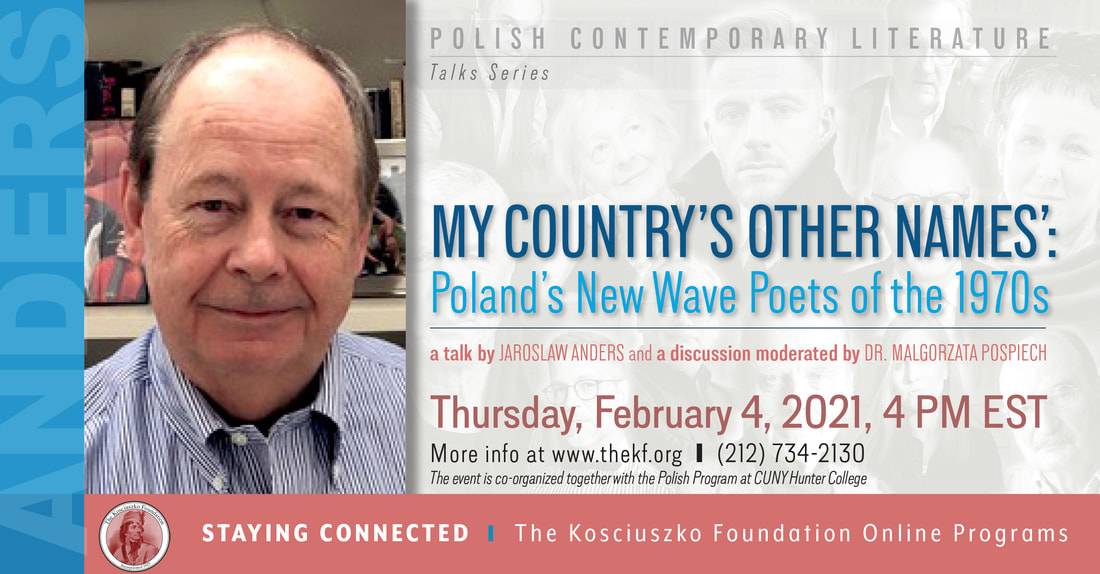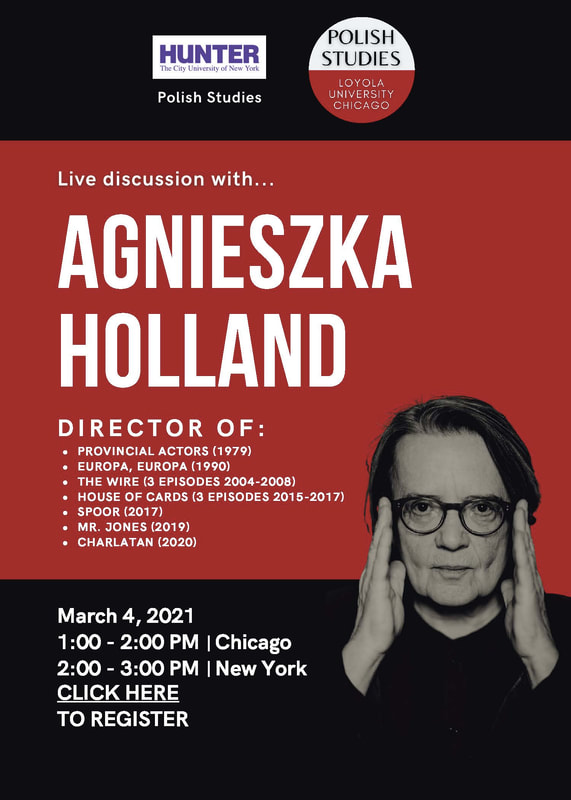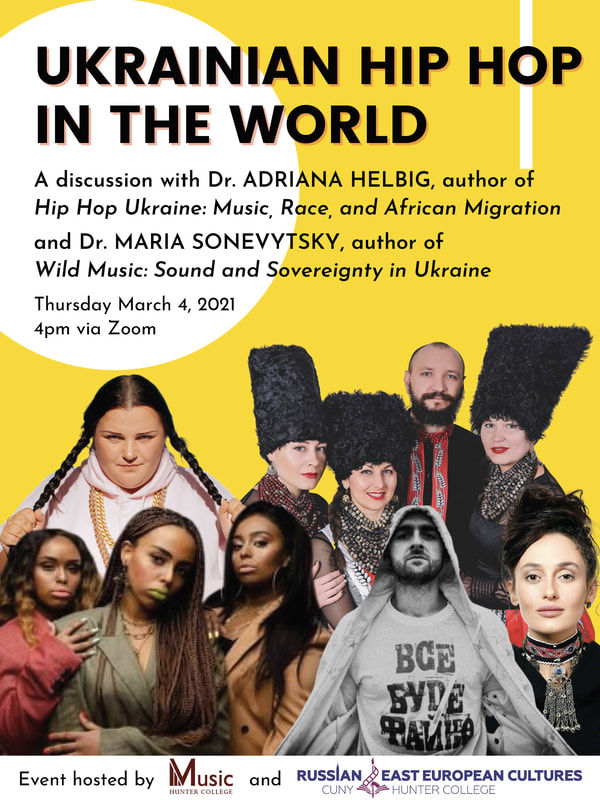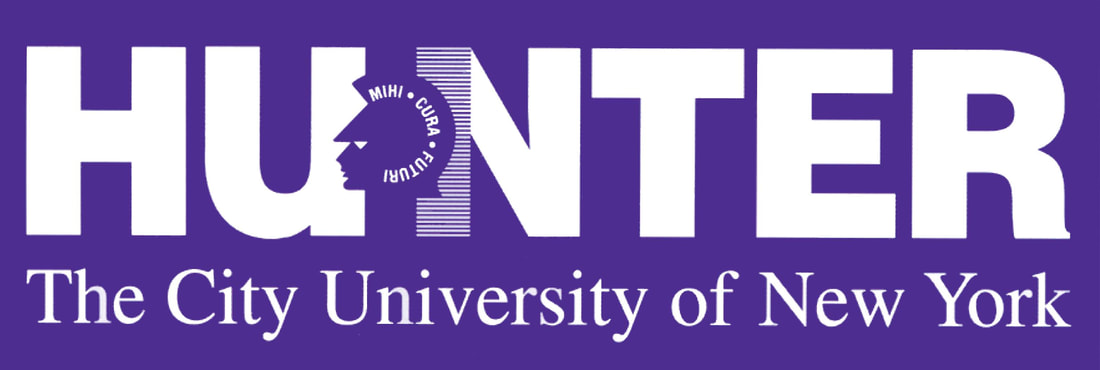SPRING 2021
Jaroslaw Anders. "'My Country's Other Names': Poland's New Wave Poets of the 1970s."
February 4, 4 - 5:15 pm. Online
A Live Discussion with Agnieszka Holland
March 4, 2 - 3 pm. Online
"Ukrainian Hip Hop in the World." A talk by Dr. Adriana Helbig Dr. Maria Sonevytsky.
March 4, 4 - 6 pm. Online
February 4, 4 - 5:15 pm. Online
A Live Discussion with Agnieszka Holland
March 4, 2 - 3 pm. Online
"Ukrainian Hip Hop in the World." A talk by Dr. Adriana Helbig Dr. Maria Sonevytsky.
March 4, 4 - 6 pm. Online




